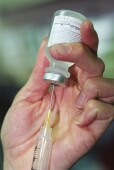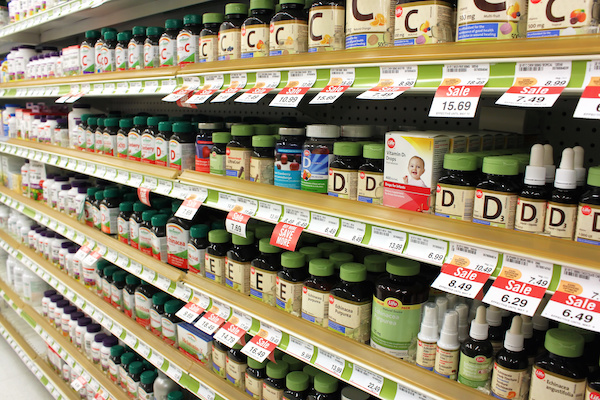
SUNDAY, Oct. 28 (HealthDay News) — Getting a flu shot may help people stay healthy in more than the obvious way, new research suggests.
“The shot doesn’t just protect you against flu, it protects you from heart attacks,” said Dr. Jacob Udell, a cardiologist at Women’s College Hospital and the University of Toronto.
In his research, Udell found that those who got a flu shot reduced their risk of heart attacks and other serious cardiovascular problems by nearly half during a one-year follow-up period.
He was scheduled to present his findings Sunday at the 2012 Canadian Cardiovascular Congress in Toronto.
Udell and his team re-evaluated the results of four randomized trials that looked at how the influenza vaccine might help heart health. In all, the studies had more than 3,200 patients. The original studies were done from 1994 to 2008.
Some of the people in the trials were free of heart disease, while others either had stable cardiovascular disease or had recently had heart attacks or other coronary problems.
All groups were followed for median of a year. Those who got the flu vaccine had about a 50 percent reduction in heart attack, stroke or other major cardiovascular events.
During the follow-up, nearly 200 major cardiovascular events were reported, including 65 deaths related to cardiovascular issues.
The research was not funded by vaccine developers.
Udell said experts don’t know for sure why the flu vaccine may be heart-protective, but offered two possible explanations.
First, he said, the vaccine may protect vulnerable patients already in poor health from one more illness that could “dip them over the edge.” Second, the protection may come from avoiding the inflammation associated with getting the flu, he said. Inflammation has long been linked to cardiovascular problems.
Whichever way it might work, he said, “it certainly lends support to a lot of clinical guidelines that recommend the flu vaccine to patients either with heart disease or after a heart attack.”
In another study presented at the meeting, researchers evaluated nearly 230 patients with irregular heartbeats who had been given implantable cardiac defibrillators. These devices give the body a shock or jolt to restore normal rhythms when needed.
During flu season, those who have implantable cardiac defibrillators often report they get more shocks (and need medical attention) than other times of the year.
Cardiologists from Sunnybrook Health Sciences Centre in Toronto found that about 11 percent of those who got the flu vaccine got at least one shock from their defibrillator during flu season, but nearly 14 percent of those who did not receive the vaccine got a shock from their defibrillator.
The protective effect of the flu vaccine is not surprising to Dr. Len Horovitz, an attending physician at Lenox Hill Hospital in New York City and an internal medicine and lung specialist.
“Influenza is a big strain on the system,” he said. That is especially true if someone has underlying disease, such as heart problems, diabetes, kidney disease or asthma.
“Even a healthy person doesn’t tolerate the flu that well,” he said.
The new report about flu vaccine protecting the heart, Horovitz said, is “all the more reason to push for vaccination, as we always do.”
This year, he said, he has noticed less pushback when he reminds patients to get their annual flu shot. Some of his patients are asking for the shot earlier this year.
Less than 30 percent of U.S. adults aged 18 to 49 got vaccinated last flu season, according to the U.S. Centers for Disease Control and Prevention.
More information
To learn more about flu vaccination, visit the U.S. Centers for Disease Control and Prevention.

